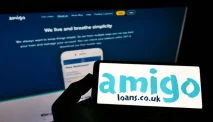When making extra payments, you should specify which loans you want to apply them to and how you want to allocate them. For example, you may want to target the loans with the highest interest rates first, or the loans with the smallest balances first. You may also want to apply the extra payments to the principal, not the interest, of your loans. This will reduce your loan balance and lower your future interest. You can contact your loan servicer or use online calculators to see how extra payments can affect your loans.
Apply for Forgiveness or Cancellation
The last way to manage your student loans is to apply for forgiveness or cancellation programs that can wipe out some or all of your debt. These programs are usually available for federal student loans, but some may also apply to private student loans. Some of the most common programs are:
- Public Service Loan Forgiveness (PSLF): This program forgives the remaining balance of your federal direct loans after you make 120 qualifying monthly payments while working full-time for a qualifying public service employer, such as the government, a nonprofit, or a school.
- Teacher Loan Forgiveness: This program forgives up to $17,500 of your federal direct or Stafford loans after you teach full-time for five consecutive years in a low-income school or educational service agency.
- Perkins Loan Cancellation: This program cancels up to 100% of your federal Perkins loans after you work full-time for five years in certain public service occupations, such as teaching, nursing, law enforcement, or the military.
- Borrower Defense to Repayment: This program discharges your federal direct loans if you were misled or defrauded by your school, such as by false advertising, accreditation issues, or illegal conduct.
- Closed School Discharge: This program discharges your federal direct, Stafford, or Perkins loans if your school closed while you were enrolled or within 120 days after you withdrew.
- Total and Permanent Disability Discharge: This program discharges your federal direct, Stafford, Perkins, or PLUS loans if you are unable to work due to a physical or mental impairment that is expected to last at least 60 months or result in death.
To apply for these programs, you will need to meet certain eligibility criteria, submit an application, and provide supporting documentation. You may also have to pay taxes on the forgiven or canceled amount, unless you qualify for an exemption. You can find more information and resources on the Federal Student Aid website1 or contact your loan servicer.






